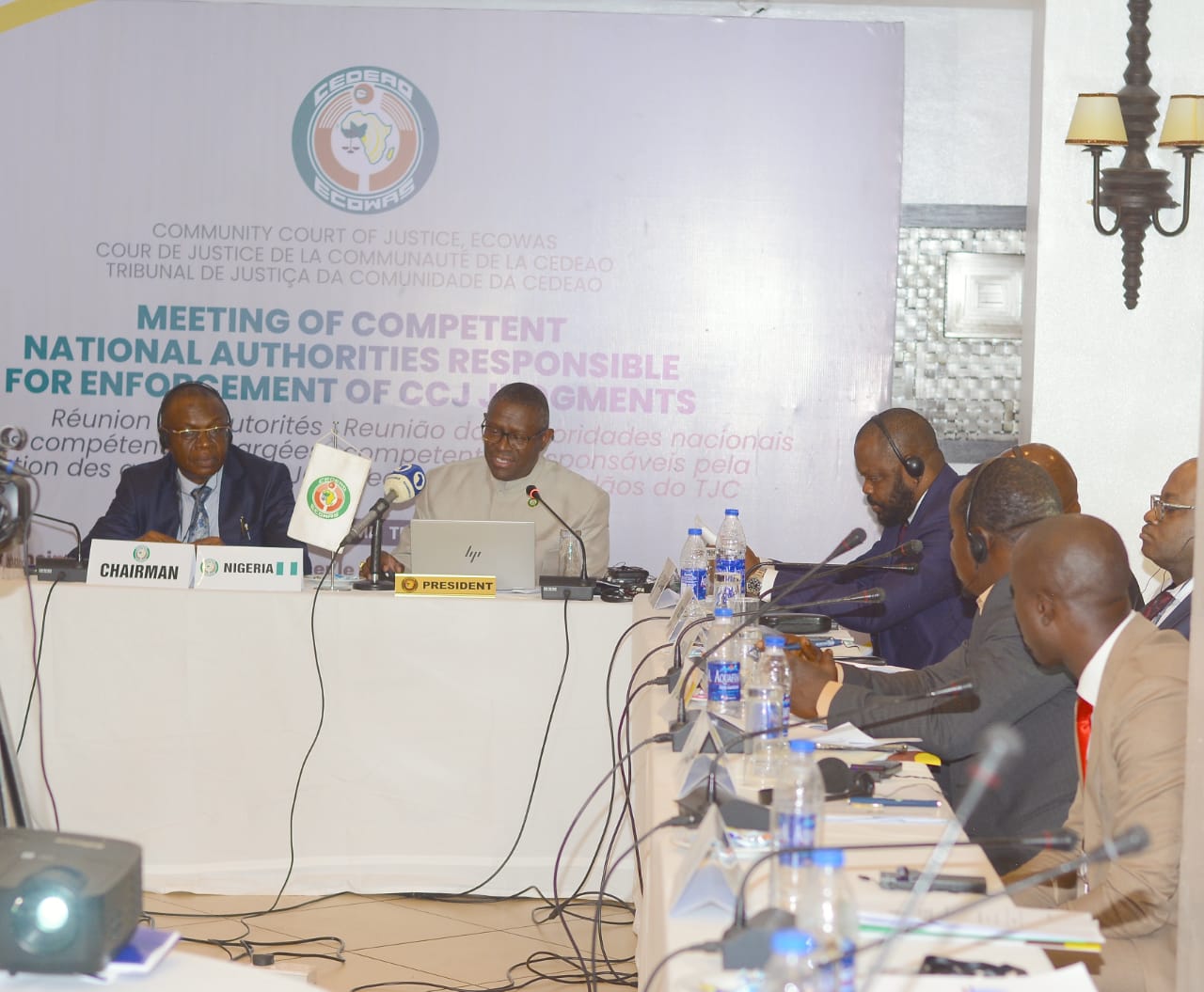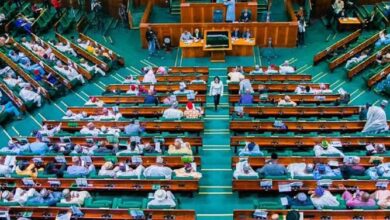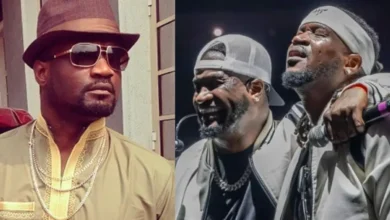
Lagos, Nigeria – Member states of the Economic Community of West African States (ECOWAS) have collectively resolved to implement sweeping reforms aimed at strengthening the enforcement of judgements delivered by the Community Court of Justice (CCJ), following the conclusion of a pivotal meeting of national enforcement authorities in Lagos.
The meeting, which brought together representatives from ministries of justice, judicial officers, and legal enforcement experts from across the subregion, culminated in a unified decision to adopt a framework that will enhance cooperation between the CCJ and designated competent national authorities.
The shared commitment addresses what has long been seen as a weak link in the regional justice system: the inconsistent and often poor enforcement of binding court rulings by member states.
In his closing remarks, the President of the ECOWAS Court of Justice, Hon. Justice Ricardo Cláudio Monteiro Gonçalves, described the consensus as a “milestone achievement” and a clear indication of the region’s collective will to uphold justice, rule of law, and regional integration.
“The consensus we have reached here today is not only timely but transformative. We have moved beyond discussions and recommendations, we have committed ourselves to action,” he said.
“By agreeing to institutionalize collaboration between the Court and national authorities, we are laying the groundwork for a more effective and respected justice system across West Africa.”
Read Also: Promoting Justice and Integration: ECOWAS Court Moot Court Competition Kicks Off
Key resolutions from the meeting include:
Annual Convening of Enforcement Authorities: Member states agreed to hold an annual forum for designated competent authorities, providing a regular platform to share challenges, best practices, and coordinate enforcement efforts.
Domestication of ECOWAS Legal Instruments: All member states committed to expediting the domestication of the Revised ECOWAS Treaty and the Supplementary Protocol on the Court, particularly in dualist jurisdictions where national incorporation is required for enforcement.
Designation of Competent National Authorities: Countries that have yet to designate their enforcement authority pledged to do so without further delay, in line with Article 24(4) of the Court’s Protocol.
Development of a Regional Enforcement Roadmap: Participants adopted a framework with clear timelines and measurable goals to monitor implementation progress.
Only 10 out of 12 ECOWAS member states have so far designated competent enforcement authorities.
Mr Gaye Sowe, Acting Deputy Chief Registrar (DCR) and *Registrar – Appeals, Arbitration and Enforcement, emphasized the urgent need to close this gap and noted that the annual meetings will serve as accountability checkpoints.
Also Read: Ecowas Court Finds Ghana Guilty Of Unlawful Detention of Homeland Study Group Foundation Members
“We’ve agreed to move forward with a roadmap. Countries will share experiences and learn from one another—Senegal from Nigeria, Nigeria from Benin. We are one legal community. These decisions must no longer be symbolic. They must have real, enforceable impact,” Mr Gaye Sowe said during a post-meeting media briefing.
Representing Nigeria’s Attorney General, Mr. Nnanna O. Ibom of the Federal Ministry of Justice, reinforced the importance of follow-through.
“The value of our deliberations lies in their implementation. That is the only way to entrench the rule of law across our region,” he asserted.
The meeting closed with a renewed pledge by participants to support the ECOWAS Court of Justice in its mandate to uphold human rights, regional treaties, and the obligations of member states.
The collaborative spirit of the meeting, observers say, marks a turning point in the Court’s ongoing battle for relevance, authority, and full compliance.
As the ECOWAS region grapples with evolving security, political, and economic challenges, the effective enforcement of court decisions is seen as a crucial step in consolidating democratic governance, regional integration, and the protection of fundamental rights.
With the adoption of this collective framework, ECOWAS is signaling that the era of non-compliance may finally be drawing to a close.







